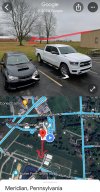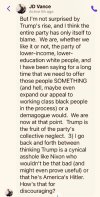Secret Service Under Scrutiny After Assassination Attempt on Trump
President Biden calls for a review of the protective agency’s actions after the attack, which left an audience member dead and two critically wounded.




By
Zolan Kanno-Youngs,
David A. Fahrenthold,
Hamed Aleaziz and
Eileen Sullivan
The reporters have covered presidential security over various administrations.
- July 14, 2024Updated 5:36 p.m. ET
President Biden on Sunday called for an “independent review” of security measures before and after the attempted assassination of former President Donald J. Trump, while directing the Secret Service to review all of its security measures for the Republican National Convention this week.
Mr. Biden’s directive, though brief and without specifics, is likely to increase the scrutiny of the decisions and possible failures of the agency charged first and foremost with protecting the lives of the country’s current and former leaders, and their families.
Less than 24 hours after Mr. Trump was injured at a campaign rally in Butler, Pa., members of Congress were promising hearings and former law enforcement officials were questioning why the warehouse roof where the would-be assassin, Thomas Matthew Crooks of Bethel Park, Pa., fired shots was not covered by the Secret Service’s security perimeter, despite being within the range of some guns.
Mr. Trump, the presumptive Republican nominee, was herded off the stage and pronounced fine, but a spectator was killed in the shooting and two others were critically wounded.
“Congress will do a full investigation of the tragedy yesterday to determine where there were lapses in security and anything else that the American people need to know and deserve to know,” Speaker Mike Johnson, Republican of Louisiana, said Sunday on NBC.
The chair of the House oversight committee also asked the Secret Service director, Kimberly A. Cheatle, to testify at a hearing on July 22.
The demand for answers from the president and Congress will likely spur another reckoning for an agency that has had its share over the past two decades. The Secret Service
has faced administrative and cultural overhauls in recent years following widespread reports of debauchery, reckless behavior and
narrowly-avoided security failures. Saturday’s assassination attempt will surely be one of the most serious additions to that list.
Yet, there is little time for deep soul searching. The Republican National Convention begins this week in Milwaukee. The Secret Service has promised additional layers of both uniformed and plainclothes law enforcement from multiple agencies, as the days-long convention has been designated a National Special Security Event. That designation is usually used for large-scale events, including the United Nations General Assembly, and allows the Secret Service to pull in additional federal resources.
Representative Ruben Gallego, a Democrat of Arizona and a former military corporal, sent a letter to Ms. Cheatle on Sunday, questioning whether the Trump campaign had requested additional resources for the event and whether a proper assessment of the area had been conducted. Mr. Gallego also raised whether Secret Service protection should reconsider its denial of a detail for Robert F. Kennedy, Jr., a independent presidential candidate whose father was felled by an assassin in 1968.
Once shots commenced at the Trump rally, a counter sniper for the Secret Service shot and killed the shooter almost immediately. An AR-15-type rifle was found lying by Mr. Crooks’s body in the aftermath.
The Secret Service routinely relies on local law enforcement when it plans security for events like Saturday’s. The agency is directly responsible for the security within the designated perimeter of the event. In this case, that was the venue, the audience and the protectee, according to the agency’s spokesman, Anthony Guglielmi.
The building where the shooter positioned himself was outside of the perimeter, which meant it would have been secured by local law enforcement. On Saturday, there were four counter sniper teams — two teams from the Secret Service and two from local law enforcement, Mr. Guglielmi said.
But former law enforcement officials, including those with ties to the Secret Service, are focused on why the agency’s protective perimeter did not include the nearby building where the gunman staked out such an advantageous position.
“Did we miss something? And if we did miss something, we need to stand up and take ownership of it,” said Robert E. McDonald, a lecturer at the University of New Haven who spent 20 years in the Secret Service. Mr. McDonald questioned why the Secret Service did not have counter snipers watching that building more closely.
“We’re not looking at any skyscrapers here,” he said. “They should be able to see that. And if somebody is up there, they should be able to send law enforcement personnel up there to check that out.”
Image
A State Department agent said the snipers were in the right place but that the building Mr. Crooks shot from should have been secured given its height and short distance from Mr. Trump.Credit...Eric Lee/The New York Times
When preparing for an event like a rally, the Secret Service’s presidential detail advance teams do a walk-through of the site to determine necessary resources and manpower, according to former law enforcement officials. They also decide how expansive the security parameter around the president will be.
One former official said that perimeter is divided into three categories: the inner perimeter directly around the president’s lectern, the middle perimeter and an outer perimeter. One former Secret Service official who has developed security plans for many presidential speeches and events said the middle perimeter around Mr. Trump should have included the nearby building and a sniper team should have been positioned on the building’s rooftop.
Law enforcement officials also questioned how long it took the Secret Service to move Mr. Trump off the stage. At one point, the Secret Service appeared to slow down to allow Mr. Trump to put on his shoes and pump his fist, something a former Secret Service official described as unusual.
Secret Service agents themselves also were privately texting and calling one another on Sunday questioning why Ms. Cheatle had not been more visible to the public after the shooting. While federal and local law enforcement held a news conference detailing the shooting on Saturday night, Ms. Cheatle did not appear.
Ms. Cheatle, who had served in the Secret Service for nearly three decades, worked on Mr. Biden’s protective detail when he was vice president. She was appointed to lead the agency in 2022, leaving an executive position with PepsiCo., as the Secret Service was dealing with the fallout of congressional investigations into the deletion of agents’ text messages during the attack on the Capitol on Jan. 6, 2021.
In an interview with CBS in May of 2023, Ms. Cheatle said the agency faced a challenge when it came to recruiting and staffing. She said the Secret Service lacked resources for some of its training exercises at its facility in Maryland on exercises. For example, agents do not have a replica of the White House when practicing how to apprehend those who might scale the White House fence.
“You wouldn’t ask your Super Bowl champs to go out and train in a parking lot,” Ms. Cheatle told CBS.
Some members of law enforcement defended the Secret Service’s handling of the incident.
“The agents did their job,” said Cheryl Tyler, a former member of the Secret Service protective division and training instructor for the agency. “That’s a chaotic moment. It’s a stressful moment.”
But she too acknowledged the need to create a boundary around Mr. Trump.
“The outside venues, with no protection, no cover, no building structure, those are hard to protect,” Ms. Tyler said. “You have no boundaries. You have to create a boundary. You have to create a buffer.
Ali Watkins contributed reporting.














